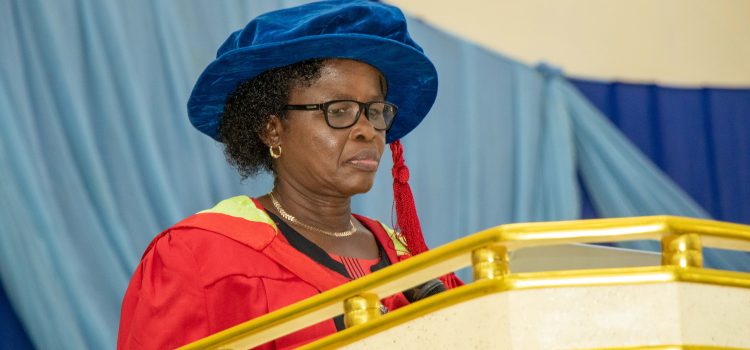The Guest speaker at McPherson University 2nd Nursing Induction Ceremony, Prof. Christiana Olanrewaju Sowunmi (RN, PhD, FWAPCNM), has urged newly inducted nurses to break traditional boundaries and embrace leadership in shaping the future of healthcare and national development.
Delivering a lecture titled “Breaking the Mold: Rethinking the Role of Nurses in National Development in the 21st Century,” Prof. Sowunmi challenged the graduating class to reject outdated perceptions of nursing as limited to bedside care. “You are not just entering a career,” she declared, “you are stepping into a calling that holds the power to transform lives, communities, and nations.”
She emphasized that while the traditional roles of nurses, caregivers, advocates, and educators remain relevant, today’s healthcare landscape demands more. Nurses, she said, must now be seen as policymakers, innovators, and agents of social change. “Be bold, be innovative, be the nurse who leads, who questions, who advocates, and who builds,” she charged the graduates.
Prof. Sowunmi also detailed the critical role nurses play in national development. From advancing public health and disease prevention to contributing to gender equity, strengthening healthcare systems, and leading during health crises, nurses, she said, are indispensable to sustainable progress.
Highlighting the influence of technology, she noted that nurses are now at the forefront of digital health innovation. “The integration of telehealth, digital platforms, and data analytics into care delivery is revolutionizing healthcare,” she said, encouraging the inductees to embrace these tools to reach underserved communities and improve patient outcomes.
The lecture further aligned nursing practice with global priorities, particularly the United Nations Sustainable Development Goals (SDGs). Prof. Sowunmi explained how nurses contribute to SDG 3 (Good Health and Well-being) and SDG 5 (Gender Equality), not only through direct care but also by educating patients and empowering women through leadership in the healthcare sector.
In her closing remarks, she urged the graduates to rise above limiting stereotypes and take ownership of their roles as changemakers. “The world is waiting for the difference only you can make,” she said, reinforcing the value of their knowledge, compassion, and courage.
The induction ceremony, graced by university officials, faculty, staff, and representatives from several institutions, marked a pivotal moment for the nursing graduates. As they took their professional oaths, they embraced a renewed sense of purpose, not just as healthcare providers, but as transformational leaders for a healthier, more equitable world.










